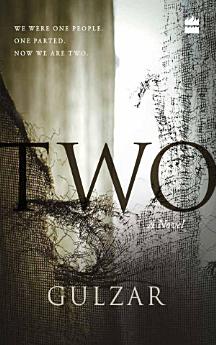এই ইবুকখনৰ বিষয়ে
It's the winter of 1946. A truck leaves the village of Campbellpur after news of the impending Partition pours in. It is carrying people who don't know where they will go. They have just heard words like 'border' and 'refugee', and are struggling to understand how drawing a line might carve out Pakistan from Hindustan. As they reach the border, the caravan disperses and people go their own ways. Gulzar's first novel tracks the lives of the people in that truck right from 1946 up to the Kargil war. A novel on what the Partition entailed for ordinary people, Two is also a meditation on the fact that the division of India and the carnage that followed, once set into motion, kept happening inexorably and ceaselessly, and people like those who left their homes on that truck never found another home; they kept looking for a place called home, a place to belong to.
মূল্যাংকন আৰু পৰ্যালোচনাসমূহ
৫.০
২ টা পৰ্যালোচনা
লিখকৰ বিষয়ে
Gulzar (b. 1934) is one of India's leading poets; he has published several volumes of poetry and fiction (many of which are available in translation) and is also regarded as one of the country's finest writers for children. A greatly respected scriptwriter and film director, he has been one of the most popular lyricists in mainstream Hindi cinema, gaining international fame when he won an Oscar and a Grammy for the song 'Jai ho'. Gulzar received the Sahitya Akademi Award in 2002, the Padma Bhushan in 2004, and the Dadasaheb Phalke Award in 2014.He lives and works in Mumbai.
এই ইবুকখনক মূল্যাংকন কৰক
আমাক আপোনাৰ মতামত জনাওক।
পঢ়াৰ নির্দেশাৱলী
স্মাৰ্টফ’ন আৰু টেবলেট
Android আৰু iPad/iPhoneৰ বাবে Google Play Books এপটো ইনষ্টল কৰক। ই স্বয়ংক্রিয়ভাৱে আপোনাৰ একাউণ্টৰ সৈতে ছিংক হয় আৰু আপুনি য'তে নাথাকক ত'তেই কোনো অডিঅ'বুক অনলাইন বা অফলাইনত শুনিবলৈ সুবিধা দিয়ে।
লেপটপ আৰু কম্পিউটাৰ
আপুনি কম্পিউটাৰৰ ৱেব ব্রাউজাৰ ব্যৱহাৰ কৰি Google Playত কিনা অডিঅ'বুকসমূহ শুনিব পাৰে।
ই-ৰীডাৰ আৰু অন্য ডিভাইচ
Kobo eReadersৰ দৰে ই-চিয়াঁহীৰ ডিভাইচসমূহত পঢ়িবলৈ, আপুনি এটা ফাইল ডাউনল’ড কৰি সেইটো আপোনাৰ ডিভাইচলৈ স্থানান্তৰণ কৰিব লাগিব। সমৰ্থিত ই-ৰিডাৰলৈ ফাইলটো কেনেকৈ স্থানান্তৰ কৰিব জানিবলৈ সহায় কেন্দ্ৰত থকা সবিশেষ নিৰ্দেশাৱলী চাওক।








